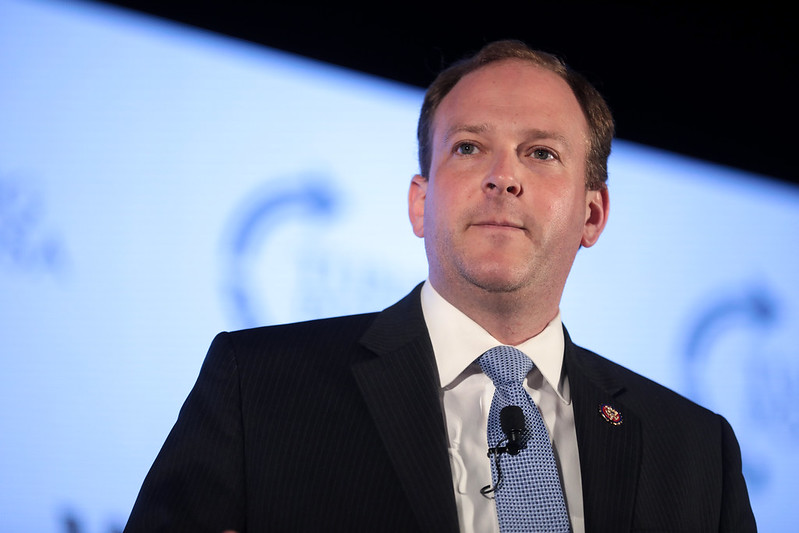The U.S. Environmental Protection Agency has only been regulating greenhouse gas emissions for four months, but business groups are already tired of the increased oversight. According to new reports, some of the largest business groups in America are fighting back, urging the President and Congress to strip the EPA of its new authority.
The powerful business group known as the Business Roundtable is trying to convince the White House that the EPA does not need to be involved with the regulation of greenhouse gas emissions, at least not right now. The Roundtable insists that imposing new standards for emissions will hurt their industries and impose what they consider unfair costs on member corporations. In addition, the Roundtable claims that these new standards would plunge our economy back into another recession and cause massive job losses, as corporations attempt to recoup their expenses of “going green” by firing employees.
The Business Roundtable’s sentiments on the new EPA standards have been echoed by the U.S. Chamber of Commerce, as well as Congressional members from both major political parties.
The Business Roundtable is made up of business leaders from all types of corporations doing business in America. Members include Exxon, General Electric, Southern Company, and various other energy, manufacturing, defense, banking, and pharmaceutical companies. According to investigative journalist David DeGraw, the Business Roundtable is the most powerful business lobby in America, and has their hand in almost every piece of legislation that effects a member of the Roundtable:
The Business Roundtable is the most powerful activist organization in the United States. Their leaders regularly lobby members of Congress behind closed doors and often meet privately with the President and his administration. Any legislation that affects Roundtable members has almost zero possibility of passing without their support.
For three major examples, look at healthcare and financial reform, along with the military budget. The healthcare reform bill devolved into what amounts to an insurance industry bailout and was drastically altered by Roundtable lobbyists representing interests like WellPoint, Aetna, Cigna, Pfizer, Eli Lilly and Johnson & Johnson…Almost every aspect of financial reform has been D.O.A. thanks to Roundtable lobbyists representing the interests of Goldman Sachs, JP Morgan, Morgan Stanley, Citigroup, Bank of America, HSBC, Master Card and American Express…The drastic rise in military spending is also a result of Roundtable lobbyists pushing the interests of large military companies like Boeing and Bechtel, along with the largest oil companies like ExxonMobil, Shell, Hess and Chevron.
So what do these companies do in order to ensure that they receive special favors from their friends in Washington? Again from DeGraw:
On financial reform alone, those representing Wall Street firms gave “$42 million to lawmakers, mostly to members of the House and Senate banking committees and House and Senate leaders.” During the 2008 election cycle, they gave $155 million: $88 million to Democrats and $67 million to Republicans. Keep in mind, this is the spending on just their financial reform initiative. When it came to health reform, they gave even more.
To be sure, these business interests are not used to being told “no.” So why is the Roundtable so upset about the EPA’s new standards? After all, they not only acknowledge the fact that global climate change is real and poses a significant threat, but they also give the appearance that they are working to help solve the problem. Their objection stems from the fact that it will cost them money to meet the new EPA guidelines, and this group doesn’t like spending money, unless it is to purchase a politician.
The EPA says that meeting the new guidelines will cost the industries represented by the Business Roundtable and the U.S. Chamber of Commerce a combined $90 billion over the next ten years, a hefty price tag no matter how you slice it.
But what about the flip side? What happens if these industries continue with business as usual?
While that $90 billion ten-year price tag seems lofty, it pales in comparison to the $1.9 trillion that experts predict it will cost us if we do nothing to control emissions by the year 2100. In the interim, the U.S. will end up spending $3.8 trillion over the next several decades just to combat the damage that has already been done. Having at least a moderate understanding of mathematics, it is clear that $90 billion is significantly less than $3.8 trillion.
But for American businesses, it is all about what’s happening today – the future be damned. And Congress doesn’t appear to be helping. Last year, a climate bill that would have reduced emissions failed to pass the Democrat-controlled Congress, and the new Republican-controlled Congress recently defeated another attempt to reduce emissions.
President Obama has made it clear that he will veto any bill that comes across his desk attempting to curtail the EPA’s new authority, but seeing as how the Business Roundtable is actually considered one of his closest allies, and given his penchant for compromise, EPA’s mandate to protect the public from global warming pollution might well get scuttled this year.
Let’s hope President Obama remembers the message he got first hand from youth climate activists he met with at the White House during PowerShift 2011 earlier this month. Otherwise, we’re in for an expensive future.
Subscribe to our newsletter
Stay up to date with DeSmog news and alerts







